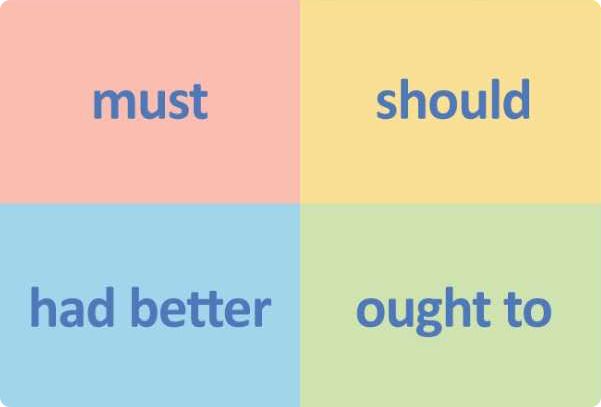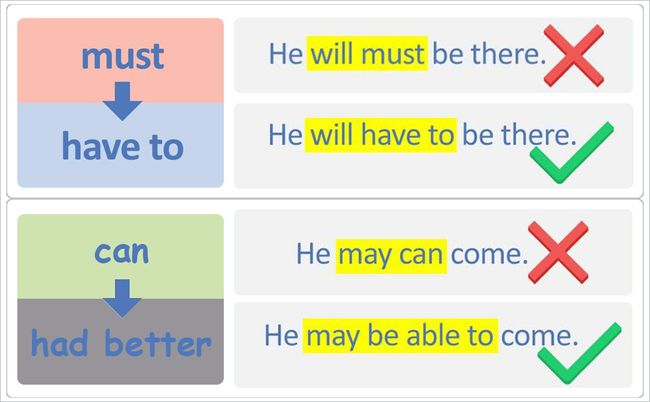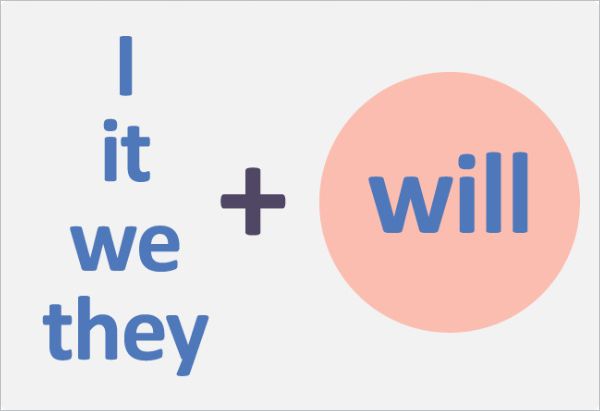Talking about Modals 2
Here is the second set of modals.
These modals express degrees of logical force or social expectation.
must, had better, should, ought to.
Note that none of them has a past tense or weakened form.
The first one,"must" indicates logical or social necessity.
It expresses the strongest logical or social force.
The modals "should" and "ought to" assert that something is probable or expected, but not necessary.
The modal "had better" expresses advisability.
In other words, if someone "had better" do something, they should do it or there may be negative consequences.
Therefore, "had better" has the feeling of a threat, as in "You had better be there."
This isn't the same as "You should do it", which means you are expected to do it, but without an implied threat if you don't.
Questions:
1. Which model expresses logical or social necessity?
A. had better B. should
C. must D. ought to
2. If Tom is taller than Ben and Ben is taller than Sue, then …
A. Tom had better be taller than Sue.
B. Tom must be taller than Sue.
C. Tom should be taller than Sue.
One interesting rule is that no more than one modal can be used with any verb.
There are no exceptions to this rule.
Therefore, it's incorrect to say: "He will must be there."
To avoid breaking this rule, there are other words that have the same meaning, but are not modals.
In the case of "must", for example, we use "have to" as in "He will have to be there."
Similarly, we cannot say "He may can come."
Instead, we say "He may be able to come."
Question:
Which expression has the same meaning as "can", but isn't a modal?
A. have to B. going to
C. had better D. be able to
Put the sentences below in order:
(1) Similarly, we cannot say "He may can come."
(2) There are no exceptions to this rule.
(3) One interesting rule is that no more than one modal can be used with any verb.
(4) Instead, we say "He may be able to come."
(5) In the case of "must", for example, we use "have to" as in "He will have to be there."
(6) To avoid breaking this rule, there are other words that have the same meaning, but are not modals.
Correct Order: (3) (2) (6) (5) (1) (4)
One last thing to note about modals.
They use the same form regardless of what the subject is.
If the grammatical subject is l, it, we or they, we use the same form, will.
We would never say "He wills be there."
But with non-modal forms, such as "have to" we must change the form to match the subject.
"He has to be there" and "I have to be there".
Repeat & Read Sentences:
1. The modal "may" shows that the speaker thinks something is possible.
2. One interesting rule is that no more than one modal can be used with any verb.
3. The model "must" expresses logical or social necessity.
4. The modal "could" expresses less potential than "can", and is often used in conditionals.
5. He left an hour ago, so he should be there by now since he's had plenty of time to get there.
6. “What must we do?” has the same meaning as “what do we have to do?”
7. The expression “be able to” has the same meaning as “can”, but isn’t a modal.



